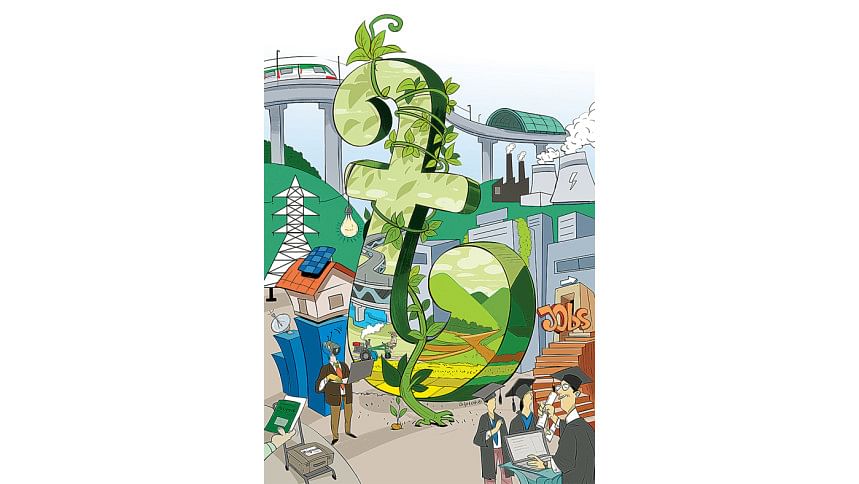EDITOR’S NOTE

Dear Readers,
We are proud to present the fourth instalment of our five-part special supplement series, marking The Daily Star's 34th anniversary. This segment delves into one of the most pressing questions of our time: how can Bangladesh forge a development path that is both equitable and sustainable? As the country tries to move beyond its previous growth model—one that, despite some progress, left many behind—it must now seek a strategy that serves all its citizens.
While Bangladesh has seen significant economic growth in recent decades, the top-down development approach has often struggled to address structural inequalities, environmental degradation, and the vulnerabilities of marginalised communities. Rapid industrialisation, urban expansion, and infrastructural projects have undoubtedly contributed to economic progress, but they have also led to concerns about labour rights, governance, and sustainability. The adverse effects of climate change further complicate the country's development trajectory, demanding urgent and innovative solutions.
It is now imperative that Bangladesh charts a development course that is not only inclusive but also environmentally conscious. A model that ensures economic prosperity must also safeguard the nation's rich natural resources, foster human capital, and strengthen institutions that promote transparency and accountability. Only by adopting a holistic, people-centric approach can Bangladesh build a future that is both resilient and just.
To achieve this, the government must prioritise investments in quality education and vocational training to equip the workforce with skills suited for a rapidly changing global economy. Policies should also encourage innovation and entrepreneurship, ensuring equitable access to necessary financial and technological resources. Sustainable urban planning is another crucial area that requires immediate attention. With cities like Dhaka facing extreme congestion, pollution, and inadequate public services, a shift towards decentralisation can ease the pressure on urban centres while creating new economic opportunities.
In this issue, experts from diverse fields share their insights on the steps Bangladesh must take to secure a brighter future. We extend our deepest gratitude to them for their thoughtful analyses. We also sincerely thank our readers and patrons who, over the past 34 years, have continued to inspire us to uphold our motto: Your Right to Know.
Mahfuz Anam
Editor & Publisher

 For all latest news, follow The Daily Star's Google News channel.
For all latest news, follow The Daily Star's Google News channel. 



Comments